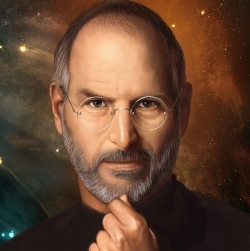
With so many fanboys spinning Silicon Valley history, it’s sometimes easy to forget about the real chain of events that led to the ongoing Apple-Google thermonuclear war, how the romance turned to hate. This timeline presents an interesting case about why, despite patents and prior art, Steve Jobs had plenty of personal reasons to despise Schmidt, Page, and Brin.
The simple answer is Google’s leadership profoundly betrayed the longtime personal trust and friendship of Apple’s leadership in stealing what Steve Jobs believed were Apple’s most prized possessions. The fuller answer is below, in a telling timeline of the once exceptionally-close Apple-Google relationship.
This discussion is timely given Google’s current PR effort to convince the public and the media that Google and Apple are likely to negotiate a patent “truce” and make Google’s Android’s patent liabilities go away. Thus it makes sense to drill down to learn more about the real likelihood of Apple being party to any patent-litigation “truce” or grand Apple-Android patent-licensing settlement.
Many are familiar with Apple’s Steve Jobs’ strong views about Google-Android’s infringement of Apple. In Steve Jobs by Walter Isaacson, Steve Jobs famously said “…I will spend every penny of Apple’s $40 billion in the bank, to right this wrong. I’m going to destroy Android, because it’s a stolen product. I’m willing to go thermonuclear war on this.” However, few are familiar with the story of what actually made Steve Jobs this angry. Moreover, few are familiar with the length and closeness of the Apple-Google relationship that explains the depth of the betrayal Steve Jobs felt about Google’s theft.
In 2001, when Google was a three-year-old start-up with roughly £30 million in revenues, Google’s co-founders met Steve Jobs and wanted him to become Google’s CEO. Already CEO of his own highly-consequential, 24 year-old tech company with £5 billion in revenues that had just developed the iconic iPod, Jobs demurred and generously took young Larry Page and Sergey Brin under his wing and mentored them.
Per Steven Levy’s In the Plex, “Jobs was excited by the opportunity to hook up with a business whose activities were entirely complementary to Apple’s — there seemed to be no competitive overlap.” Jobs went so far as to encourage his personal life coach and best friend, Bill Campbell, to become an executive coach to Google’s leadership to help them succeed. Concerning the closeness between Apple’s and Google’s leadership team, Steven Levy wrote: “There was so much overlap that it was almost as if Apple and Google were a single company
